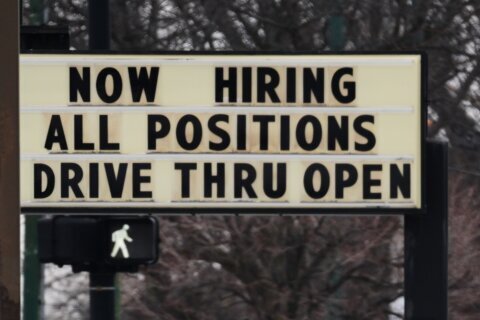In the D.C. region, the maximum conventional mortgage limit (one that Fannie Mae or Freddie Mac will purchase) is currently $970,800. At today’s rates, that is a payment of about $6,100 a month on a 30-year mortgage, or $1,400 a month more that it would’ve been a year ago.
While most borrowers aren’t taking out $971,000 mortgages, it does demonstrate how much the rapid rise in mortgage rates in the last year has affected buying power.
- Ex-Fed economist Bill Nelson on Federal Reserve strategy
- More Business News
- More Real Estate News
- More Local News
The Federal Reserve has raised its benchmark federal funds rate four times so far this year — aggressively at its last two meetings — to tamp down inflation, and that affects short-term borrowing costs, such as credit cards, auto loans and adjustable-rate home equity loans, but the Fed’s actions do not directly impact fixed mortgage rates, and a recession would actually be good for mortgage borrowers.
“Longer-term interest rates, which mortgage rates are reflective of, are influenced by the prospects of future economic growth,” said Len Kiefer, deputy chief economist at Freddie Mac.
“If the economy were to weaken, which market participants expect, that typically leads to lower interest rates despite what may be happening to short-term rates like the Fed’s policy rate.”
Mortgage rates closely follow U.S. treasury bond yields, which have been volatile this year. The 10-year yield, now at around 2.7%, has dropped from a recent high of 3.5% in June and remains up from a recent low of 1.4% in December.
The average rate on a 30-year fixed-rate mortgage is currently 5.3%, and peaked at 5.8% earlier this year, according to Freddie Mac’s weekly report. A year ago, the 30-year fixed-rate average was 2.8%.
Those are average rates, and borrowers with exceptional credit scores and healthy household incomes can get lower rates. Those with weaker credit histories and incomes may face higher-than-average rates. That has always been the case, but the spread between rates being offered currently is wide.
“The variation in rates that borrowers might get, otherwise similar borrowers, can be quite a different rate. That’s gone up quite a lot as the market as shifted, so borrowers who are active in the marketplace may want to consider shopping around,” Kiefer said.
Higher borrowing costs have significantly slowed home sales in recent months.
“Contract signings to buy a home will keep tumbling down as long as mortgage rates keep climbing, as has happened this year to date,” said Lawrence Yun, chief economist at the National Association of Realtors.
“There are indications that mortgage rates may be topping or very close to a cynical high in July,” Yun said.
The NAR forecasts home sales will be down by 13% in 2022, with 30-year mortgage rates stabilizing near 6% this year.








